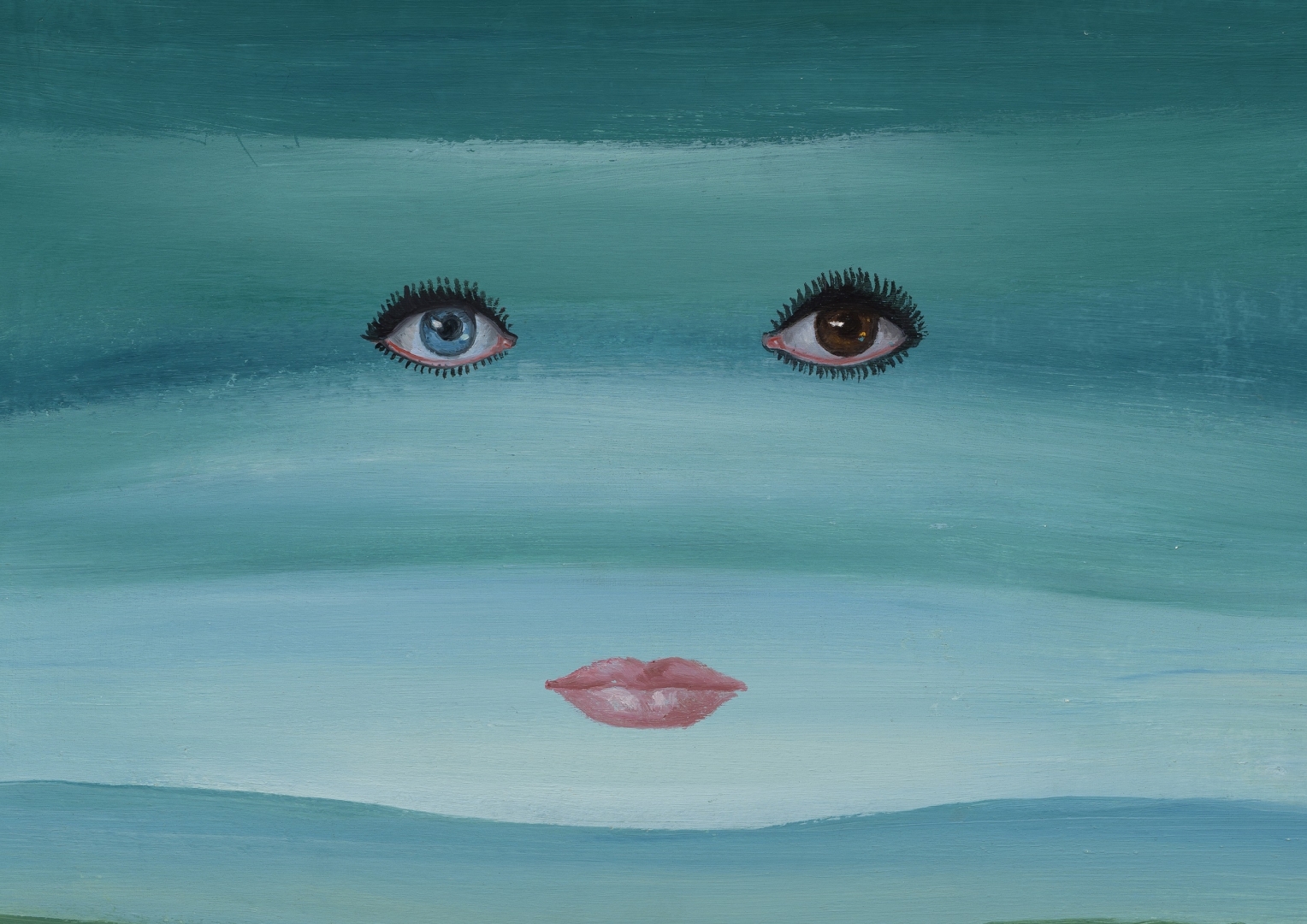Ülo Sooster (1924–1970), despite his short life span, left behind a legacy of thousands of drawings and paintings, which, despite the Iron Curtain, are part of the history of surrealism in Europe. The exhibition dedicated to the 100th anniversary of Sooster’s birth brings together a selection of works in private collections by this uniquely playful creator, who was one of the most important innovators of Estonian post-war modernism. A gallery of self-portraits will function as an exhibition within the exhibition: it includes works from museums, and traces Sooster’s development from an underground artist excluded from public art life to a seminal figure in 20th century Estonian – and, more broadly, Eastern European – art history.

Ülo Sooster. Maastik silmadega. 1968. Erakogu
Born on Hiiumaa island, the artist’s life path led him to study at the Tartu State Art Institute in the 1940s, but in 1950 he was sent to the Karaganda prison camp in Kazakhstan for practising forbidden Western modernism. Although creative activities were not allowed in the Gulag system, during the Karaganda years Sooster managed to create some of the first surrealist works in Estonian art history during the Soviet period and one of the most extensive series of self-portraits, capturing in detail the psychological states of the most difficult years of his life. However, in Karaganda, Sooster also met his future wife Lidia Serkh and the couple settled in Lidia’s home town, Moscow, after their release from the prison camp.
In the Soviet metropolis, Sooster earned his living illustrating fiction and science books, developing his own distinctive artistic practice, which combined leitmotifs from Hiiumaa – fish, junipers and eggs – with impulses from different periods and currents in European art history, as well as popular science and science fiction literature. Bringing the artistic innovations of the 1950s and 1960s to inter-war European surrealism, Sooster developed a relief technique in his paintings of the time and a systematic serial method in his drawings, working with ideas more characteristic of conceptual and postmodern art. Despite the brevity of his career, in the fourteen years that he lived in Moscow Sooster also became one of the legends and leading figures of the underground art community of the city, and his captivating personality, as well as playful and surprising works, left their mark on his fellow artists in Tartu, Tallinn and Moscow.
Dedicated to the artist’s 100th birthday, the exhibition takes a retrospective look at Sooster’s life and work: his early attempts at painting in Hiiumaa, his painterly period in Tartu under the influence of the Pallas Art School, the relief and serial works of his heyday in Moscow and the mysterious unfinished works of his last years. The view of Sooster based on the works in private collections enriches the artist’s current image by adding previously unknown rarities, confirming his reputation as a cultivator of cosmo-eroticism, radical for the Soviet era, and the creator of a distinctive artistic mythology built on the leitmotifs of the juniper, fish and egg.
A total of seventeen private collectors have lent works to the exhibition, including a number of women collectors with interesting profiles, whose collections reveal Sooster’s special relationship with women. An important part of the exhibition is the Sooster family collection, which, thanks to the decision of the artist’s relatives, was brought from Moscow to Tartu in 1990, thus shifting the focus of research on Sooster’s legacy to Estonia.
The exhibition is accompanied by a thorough book dedicated to the 100th anniversary of Sooster’s birth, in which the artist’s works from private collections are brought together with canonical works from museum collections.
The exhibition Sooster 100: View from Private Collections will remain open at the Mikkel Museum until 4 May 2025.
Exhibition team
Curators: Liisa Kaljula and Elnara Taidre
Exhibition design: Mari Kurismaa
Exhibition graphic design: Mari Kaljuste
Graphic design of the book: Tuuli Aule
Exhibition team: Richard Adang, Andres Amos, Kärt Lend, Aleksandra Murre, Lisbet Evelin Niinepuu, Alar Nurkse, Maarja Paesalu, Margit Pajupuu, Kristina Papstel, Triin Raag, Renita Raudsepp, Kaidi Saavan, Laura Tahk, Allan Talu, Peeter Talvistu, Uve Untera and Helen Volber
We thank the private collectors and institutions who loaned works to the exhibition:
The Sooster family collection, Tartu Art Museum, Hiiumaa Museums, Pallas Art Society, Mikhail Aivazov and Eva Vassilevskaya, Mart Erik, Valdek Kaurit, Tiit Lanenbek, Mart Lepp, Enn Lillemets, Heiki Mölder, the Niinepuu family, Sven Pertens, Paul Petratškov, Frida Anna Pihlak, Mati Polli, Indrek Raudne, Tiiu Relve, Svea Sildmäe, Viljar Suits, Ilja Sundelevitš and Eva Veinberg
Sponsors and supporters:
The preparation of the exhibition and book has been supported by the SA Sooster Foundation, Tallinna Kaubamaja, Akzo Nobel, Ülo restaurant, Tenno Pent Sooster, Margarita Sooster, Tõnis Pohla, Margus Linnamäe, Valdek Kaurit and Mart Erik
Galerii nimi: Mikkel museum
Address: A. Weizenbergi 28, Tallinn, Estonia
Opening hours: Tue 10:00 - 18:00 Wed 10:00 - 20:00 Thu-Sun 10:00 - 18:00
Open: 18.10.2024 — 04.05.2025
Address: A. Weizenbergi 28, Tallinn, Estonia
Opening hours: Tue 10:00 - 18:00 Wed 10:00 - 20:00 Thu-Sun 10:00 - 18:00
Open: 18.10.2024 — 04.05.2025